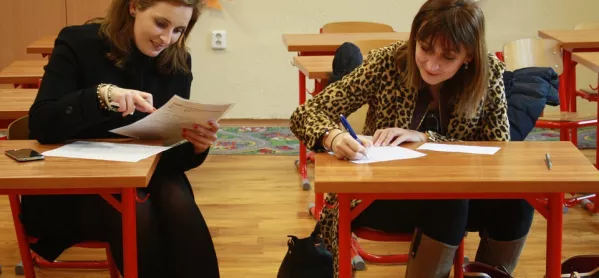Every so often there is another alleged case in the news of an adult masquerading as a child and attending school. The most recent story comes from Suffolk, where a pupil has claimed that one of his classmates is 30 years old. They nearly always seem to be 30 in these reports. Plainly, anyone below that magic age does not sound dangerous and weird enough to make the news.
There has been the usual hysteria and outrage. Some of the parents eagerly took to social media: “I suggest if anyone’s children are in the same classes as this guy then keep them off school until this has been investigated.” This was one of the more moderate reactions. If some people could have their way there wouldn’t even have been an inquiry. “This guy” would have simply been put on top of a local Suffolk bonfire.
Leaving aside the truth or otherwise of that case (which is currently in the hands of the Home Office), why, anyway, do so many people throw such a wobbly just because the occasional pupil might prove to be a bit older than expected? While there may be a few red faces in the safeguarding department the danger is still statistically negligible compared with, say, the risk involved in conveying children to and from school each day. And - if suitably vetted - a few adult-pupils (undercover or otherwise) could do wonders for any school.
As a parent I would be quite pleased to hear that one or two adult learners were to be discovered in one of my own children’s lessons - the more the mellower, surely? In most cases that older pupil presence sets the standard for attendance, punctuality, behaviour, engagement and all-round commitment. Every class would benefit from having at least one 30-plus year old amongst its number. And with the number of adult learners reported this week to be at its lowest for 20 years, we surely need to be taking steps to encourage more of them into our classrooms?
As a secondary teacher, I have been lucky enough to teach the occasional adult student in A-level classes. They have always proved to be a hugely positive influence on their younger classmates. While I have admittedly never knowingly taught anyone operating undercover in a GCSE class, I can imagine that it’s a similar story. I suspect they would instinctively follow the school uniform regulations to the letter - no constant battles over skirt length, shoes, make-up, ties. Again, a great example for others to follow.
Adult pupils also mean I can enjoy calmer conversations. With adolescents I am forever getting caught up in intense, melodramatic sagas over love, friendship groups and social media. But when I have taught mature students we are able to stick to pleasingly dull issues such as the weather, lawn maintenance and price-deals at Tesco.
These people could also do wonders for school sport and other extra curricular pursuits. That rather undeveloped Year 10 football team would gain some extra solidity and strength down the middle. The fortunes of the netball squad could be transformed by the arrival of a couple of old pros who know how to rough up the opposition semi-legally. The school orchestra might gain a few key experienced players to help hold things together.
Think, what’s more, of the impact that some of these older students can have on a school’s league table position. It’s not just that they will work harder than most students. Most adults (particularly the undercover ones) will have no primary base score at all - zero, in short. In terms of Progress 8, that would make the school’s GCSE results look incredible.
The more I think of it, children are not our future at all. Adults are.
Stephen Petty is head of humanities at Lord Williams’s School in Thame, Oxfordshire




